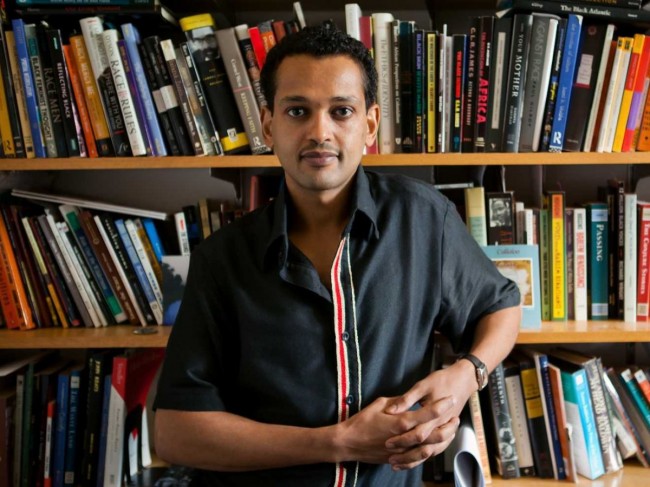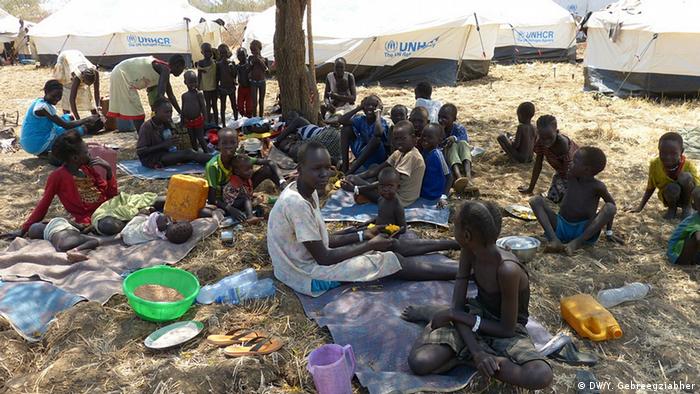
Eskinder, Serkalem and Nafekot
The mistakes of my life. Ah! I could go on and on and on about them. (Warning, I am aiming for your sympathy.) There are the missed opportunities. (God is generous, I squandered them all, literally.) There are the wrong choices (Hey there is at least the adrenaline rush that comes with every wrong move.) There is the conceited self-absorption (Obviously more and more as I rush through middle age.) There is the lack of direction (Bitter to admit, but true.) There is the incapacitating self-doubt. (Question: are you teary-eyed or disgusted?)
But here is what my strategy is not: a crafty debasement of expectation at the outset, so that by the end the balance of sympathy could sway no way but in my favor. I simply hanker honesty.
Indeed, I too yearn to be a hero in my son’s eye. Somehow privy to the notion that a male child’s first hero is the father, I dream to play the role. That this phase of the child is posed to pass quickly matters not an iota to me. I insist on my 15 minutes of fame. But I am also interested in the most enduring kind of appraisal, that of respect. While the former, unexplored adoration, is innate in every child, the latter, empathy and regard of the person, is the result of a complex process. And it has to be earned. Whether I merit this honor should be clear by the end of this letter.
I have reluctantly become an absent father because I ache for what the French in the late 18th century expressed in three simple words: liberté, egalité, fraternité. Before the advent of my son in my life, I was a nonchalant prisoner of conscience on at least seven occasions. The blithe was hardly unnoticed by my incarcerators.
It troubled them greatly because they did not know how to defeat it. Tyranny is a function of fear: the terror of state violence, the menace of imprisonment, the dread of imposed penury. None of these, however, could be applied against an entire population. But strike only against a handful and copious number of peoples are hypnotized into inaction. Our collective dignity, as the world’s oldest black nation, demands that this spell be broken irrevocably.
No myth has had wider resonance than the supposed gulf in history, lifestyle, psychology and hence politics between nations. Indeed the measure of progress has trended at varying pace for disparate peoples. But between antiquity and the 16th century, when the first flicker of scientific revolution appeared with the works of Copernicus in astronomy, the rift between the most advanced and the primal was inconsequential. It took two more centuries, until the invention of the steam engine in 1789 in Britain, before science commenced to transform society. Up to this time, the structural gap between Europe, the most advanced, and Africa, perhaps the least developed, was no more dramatic than the cleavage between rural and urban Europe itself. Only in the last 100-150 years was there a recognizable paradigm shift, with rural Europe finally overtaken by the rise of cities.

No country save the British, with their Magna Carta in 1215 and bill of rights in 1689, could claim centuries old evolution of democratic institutions. The rest of the world plunged haphazardly and unceremoniously into an unexplored world of democratic reconfiguration. The trail blazer, revolutionary France, in 1789, did not seek space for evolution to abscond from the bosom of one of Europe’s most strident monarchy to the enduringly seminal rights of men men and citizen; which enshrined not merely for France but for all humanity the principle of a government constrained by law. No less significantly France and many parts of Western Europe were democratic well before a sizable middle class emerged. The same holds for Britain. The U.S., too, was not only securely democratic in the early 19
th century, but was also a nation with an overwhelmingly rural citizenry.
But fast forward to the mid-20th century and democratic countries were still far from the norm. It took a world war between 1939 and 1945 for democracy to reverse catastrophic slide and settle for an uneasy parity with ascending totalitarianism in Europe. An additional four-decades long cold war, spanning 1945 to 1990, was needed to decide the winner convincingly. Only then did democracy attain momentum.
Despite the popular convention mischievously amplified by most autocrats, to deter demands for rights, no people or country could plausibly claim an extended tradition of democracy. Unless, that is, the last 200 years of humanity’s 5,000 years of communal history is deemed as elongated.
And it seems Africa has finally moved to aptly realign with history. The tempo is to boldly march the French way. The result is breathtaking. Over two decades, the period between the collapse of Communisim, in 1989, to the end of the first decade of the new millennium, Africa was transfigured from a repository of fatuous dictators to a stronghold of more democracies than Asia, the continent with the fastest growing middle class in history. How Ethiopia lagged in this transformative saga of African renaissance and reformation accounts for my imprisonment, cruelly and yet impersonally imperiling my prized duty as a father.
My parents brief matrimony was an early causalty of the intractable tension between tradition and modernity in post-liberation Ethiopia. Gruesome though the Italian occupation was, in the late 1930s, it tore down a smug culture of complacency. The need to modernize, to embrace the know-how of the outside world, was no more in doubt. The ease with which the nation had fallen to fascist Italy was proof beyond reproach. That my parents, both hailing from profoundly conservative Orthodox families, who traditionally equated modern education with Catholicism, were allowed to attend school is testimony of how deep feelings run.
Modern Singapore’s founding father, Lee Kuan Yew, idealizes, by way of his still ongoing great marriage debate, the kind of union my parents forged. Highly intelligent, both had won super-competitive scholarships to do tertiary studies in American universities. Father was in New Jersey at Rutgers University for six years. Mother’s tenure at the American University of Beirut, the jewel of higher education in the Middle East, was shorter, having pursued post-graduate studies for a year. Both returned home full of energy, with [a] plethora of bright ideas, and a healthy dose of the sanguine optimism of the inexperienced.
Like many of htier contemporaries, their rise was swift, easy and assimilated in style. Both were successful, upwardly mobile, and still hungry for more when they met. The only predicament was in how they personally embraced modernity, an allegory of the dilemma at the national level.
To his credit father did not yield to the sentiment which Lee Kuan Yew ruefully laments about: the compulsion of educated young men to marry down. In mother he met a remarkably rare Ethiopian woman: financially independent, educated, emotionally secure as a single woman, and no less ambitious than himself. But unlike many of his peers he did not dive for cover. He was in fact a persistent pursuer, her repeated protestation notwithstanding. She was not particularly wary of him, rather she was circumspect of her odds in a primeval society. But in the end, I presume, his charm, and certainly family pressure, inexorably prevailed. A lavish wedding sealed the pact.
Unlike virtually all the women of her generation, education had emancipated mother not only financially, but crucially, emotionally. Reversal of either was unsavory, to be fended off at any cost. She was in a sense a feminist, absent the creed. There was little of the past she cared for. To exemplify her feelings, she started smoking, though discretely. Had he known, her devoutly religious father would have simply died of grief. Neither, as far as I could discern, did father. He would have certainly balked at the prospect of a smoking wife. Even if he had wanted to oblige her, society, his friends and kin would have censured him. But every puff was an exhilarating expression of freedom for her. Freedom not from want, but the strictures imposed by tradition. When she finally stopped, after her divorce, it was for my sake. I was trying to emulate the only parent I knew. And by this time she also had a more serious diversion to engage her energy; the quest, unprecedented in Ethiopia, to prove that there can be a better life for a single woman after a divorce. Her vindication came, in little over five years, by way of the most successful clinic in the country, which she owned and managed. Father, awed and embarrassed, could only watch from the sidelines. A rebellious wife customarily returned to her husband chastened and humbled.
To all appearances, father was the quintessential modern man. He was moderately liberal, he lived in the right neighborhood, he dressed fashionably, his English was faultless, and until the rise of communism drove the latest cars. And he had money. But this was only the façade. His acquiescence to modernity extended only slightly beyond these parameters. The nucleus of the values he internalized from society, which were in need of metamorphosis to complement his public image, remained intact.
In this sense his profiles outlines the paradox that is the modern Ethiopian intellectual. There is the fixation with the façade of modernity—the technology, the infrastructure, the economy, the lifestyl. But there is also the corresponding resistance to its essential modus operandi—a radically transformed worldview. This means redefined relationships between husband and wife; parents and children; individual and society; the state and its citizens.
To mother, on the other hand, most established values were anachronistic. She had no compunction discarding them. In their place, a singular fixation with independence took hold. Society was, of course, less than ready to accommodate her. Though unexpressed, her husband had expected blunting of the fiery spirit, a gradual but inevitable acceptance of a place in life as a stay-at-home-mom. She thought otherwise. Forsaking a secure and well-paying job, when females with jobs were a rarity, for a precarious entrepreneurial venture was inexplicable. Both departures from convention were broadly misread as expressions of aggressive disposition. Few were able to see an indomitable spirit of individualism that make a modern society possible. This discord between a cumbersome past and a future grappling to unfold is also at the core of our national dispute over democracy.
A coarse encounter between the novel and the archaic is as old as history itself. The anecdotal evidence is rarely for the new to relinquish to the old. After all, women no[w] live in a far more liberate milieu than the yesteryears when few brave souls like mother were challenging convention.
Our modern politics has its genesis in a coup attempt in 1960. Though overwhelmed with relative ease, it left a lasting imprint on history by precipitating the rise of a fiery student movement, a precursor to the nation’s major political parties. Inspired by Egypt’s much romanticized coup, in 1952, which propelled young left-leaning revolutionary officers to power, Ethiopia’s was the first shot by soldiers to seize state power in black Africa. But while Egypt’s was conscientiously planned and executed to eschew violence, Ethiopia’s was marred by wanton carnage. Thus the debut of modern Ethiopian politics shadowed by unbridled violence. Fifty years later, the menace of brute force still lies at the heart of politics.
By the reckoning of the imperial government, father, like many of the intelligentsia, harbored suspect reformist sentiments. Though rewarded with high positions at an early age, there was tension in his relationship with the government. But it was tension devoid of danger for both sides. For the government, father and many of the young Turks, as they were propitiously called by some, posed no danger of subversion. They were impatient for hasty reform from inside, not calamitous revolution from outside. Even if the young Turks had their way, the result would be far less than catastrophic, with some measure of discomfort, they were tolerated. And indeed no sedition was ever intended by the young Turks. All they wanted was to upgrade, not change, the software. This somewhat cozy but uneasy bond between government and intelligentsia was upstaged the day university students flooded the streets in support of the coup attempt.

In 1960, the year of the coup attempt, Ethiopia’s elite center of learning was cloistered in a lone university college. A full-fledged university had yet to be realized. This was almost a generation after liberation from the Italians. In about the same interval, war-ravaged Germany and Japan had not only reconstructed but were on the verge of crossing new economic frontiers. Ethiopia’s shortcoming was manifestly evident. And finally a new generation scandalized by the inertia, indolence, stoicism and cynicism had risen. It was palpably time for change.
The 1960s could be credibly dubbed as the decade of student movements. But at its dawn, students nurtured no greater ambition than to be part of the global post-war economic boom. The revered genre of the silent, strong male, which dominated the 1950s, was still paramount. By the mid-1960s, Vietnam radicalized American youth, primarily on its colleges and universities. In France it was another war, Algeria, that was the impetus for campus militancy. In Iran and Europe [think he meant Ethiopia] it was a coup, successful in the case of the former, [a] debacle in the latter. The quartet gave the world the most animated students in history. By the mid-1970s, however, the Americans and French had fizzled out. The Ethiopians and Iranians peaked in the late 1970s, and quietly faded into oblivion in the early 1980s.
But their fleeting existence notwithstanding they left behind powerful legacies. The backlash against the counter-culture (contempt for authority and tradition) the students triggered in the US made the seminal presidencies of Nixon and Reagan possible. It took the coalition forged by Obama to win a second term to alter the dynamics of American politics. At their peak, Iranian students mesmerized the world by storming the US embassy in Tehran and humiliating a proud superpower. In less than a decade and a half, Ethiopian students inspired a nation to uproot a monarchy that had preserved for a millennium.
Though they were from four far-flung continents, had distinct histories, and promoted radically different visions, the students shared a common denominator: disdain for the status-quo. To the Americans no one older than 30 was trustworthy. As a way to unshackle tradition, they attacked its prudish sexual mores. The French were unduly agitated against their government, and vented their anger on the streets of Paris with passion unseen since the storming of the Bastille. After rejecting the modernizing pretensions of their foreign-tainted monarch, Iranian students yearned for the purity of a lost age. To the Ethiopian students, groomed by rote learning rather than critical thinking, Marxism became the Holy Grail, the panacea to all the nation’s ills.
But a pivotal divide also separated them. The Americans and the French lived in free societies. There were adept political parties, vibrant free press, useful civic organizations, multitude of professional and trade unions to channel grievances and represent interests. None of these were about to be supplanted by students. The Ethiopians and Iranians lived in tired monarchies. There were no conduits for dissent. Here was an opening for transformative impact.
Unlike the Japanese and the Chinese after the madness of the Cultural Revolution, Ethiopian students never really made the crucial connection between the indigenization of science and development. They saw national redemption primarily in the social sciences, and many of the best students flocked to them in droves despite steady underperformance on standardized reading and comprehension tests. To father and his generation, the monarchy was sacrosanct. Very few of them flirted with republicanism. Their ideal was a British monarchy. To the students who were embittered and abruptly radicalized by the events of 1960, the monarchy, and the US, which was implicated in the reversal of the coup attempt, became loathed icons. Embracing socialism seemed only logical and inevitable. And here is where an academic culture chronically short on critical thinking was to have detrimental effect. Whereas in the U.S. and France deep scholarly foundations mitigated against the swamping of the student majority by extremism, in Ethiopia and Iran intellectual buffers against infantile radicalization were ominously absent. But while Iranian students rallied around grassroot sentiments for religious chastity and nationalism, only Ethiopian students militated against all things aboriniginal. Nothing was sacred to them. The emperor was lampooned. Religion was rejected. Culture was mocked. Tradition was attacked. History was disputed. Ethnicity was politicized. It was a tsunami at full thrust against all things established. A good measure of excitement was the intriguing possibility of engineering society from scratch.
But rejection is virtually a carefree venture. There is little strenuous intellectual effort involved. The demanding undertaking lies in the pursuit and nourishment of an alternative consensus. Ultimately, this is where the students failed calamitously. Singularly transfixed with rebellion, and only perfunctorily with its aftermath, they were governed by no moral codes, were disciplined by no hierarchy, and were direly lacking sense of proportion to temper emotions. In this sense, they had no analogue in the Americans or the French. Nor indeed in the Iranians. The Americans and the French were ultimately anchored by nationalism and ingrained identity. The Iranians of course had religion. Having rejected both nationalism and religion, Ethiopian students had nothing durably satiating to replace them with. This was the pristine environment in which militancy thrived. Extremism thus became not a mere idiosyncrasy, but rather the structural building block of the movement. Tragically, what the Ethiopians radicalized was really nothing more than nihilism. The mania was to tear down an existing order. In the end, after the collapse of the imperial order, only a small minority, by now metamorphasized into armed insurgents, had the energy to tread o. The majority was too exhausted to continue, opting for exile and a well-earned rest in the West.
Of [A] multitude of vague memories from my distant childhood, the sense of dread that permanently enveloped my grandmother’s home, where my mother and I lived intermittently after the divorce, still lingers with me. Years later, in the 1990s, I was to learn, rather to my shock, ours was only one of a handful of families in the neighborhood that mourned the fall of Haile Selassie, the diminutive king who had held sway over the nation for over half a century. Initially I thought it was loss of privilege that explained our anomalous. But I know now there was more.
If one word was to render the spirit of the revolution, it would certainly be equality. An inordinate passion for equality suddenly bewitched the public—what in theory could only have meant equality of opportunity was in practice subverted to imply equality of merit. Not even the elderly, the repository of wisdom in traditional thinking, were to be deferred to anymore. The nation’s best and brightest, whose income, lifestyle and manners marked them from the majority, became more subjects of derision than role models. They were no more in vogue. It was time to celebrate mediocrity, to artificially elevate it to a higher podium. This atmosphere endured, with disastrous consequences for the entire reign of the military dictatorship, the guardian of the revolution and still influences the present. It is this pauperization of value that lies at the provenance o fthe national malaise that has numbed the intellectual elite.
To be fair, many nations, including the meritocratic U.S., where guilt-ridden 2008 (2012?) presidential candidate Mitt Romney was bullied for his wealth, occasionally toy with debased populism, but rarely has it persisted with the kind of intensity evident in Ethiopia. It was this slide to debauched populism that distressed grandmother’s household. It was a prescient reserve that anticipated an impending moral morass.
The ultimate failure of the military dictatorship, including its gross human rights violations, is the failure of Communism. But even within the narrow constraints of communism, more was possible. The Soviets failed broadly but compensated with a world-class military-industrial complex. Nothing works in Cuba except health services, one of the best in Latin America. Mao’s China at least liberated a billion plus mass of humanity from worry about its quotidian meals. Ditto for many Communist countries, where a lone bright spot attested to the restrained potential of an oppressed people. But because the principal consensus in post-revolutionary Ethiopia had been an unremitting joy derived from the leveling of society, a culture against exceptionalism gained traction. Blending became the default modus operandi both at the individual and group levels. No distinction was made between superiority stemming from privilege and superiority attained by merit. For a government fighting multiple insurgencies, this was a fatal shortcoming. Unable to build a professional army based on merit, it eventually succumbed not to superior force but to weaker adversaries who had assembled meritocratic fighting machines. It took seventeen years, but there was no avoiding it: grandmother was vindicated. And she lived to see it all. God bless her soul.
Sadly, the implosion of the military dictatorship did not necessarily entail reorientation of national disposition. On the contrary, unlike their less fortunate, American, French and Iranian brethren, Ethiopian students, untempered by outside influence, ascended to power in 1991 and had their nation at their complete mercy. And they did what was unthinkable to everyone but the puritan nihilist: facilitated—nay, promoted—the secession of Eritrea, the heartland of historical Ethiopia. Whether the nation will survive the shock that ensued is still an open question.
But while this is where we are, our future is not predestined. The future is malleable, at least in its mid to long-term facets. This is God’s way of internalizing hope into our existence. And best of all, the age of the students is fading. Consider recent events.
Even in sane democracies, the death of a nation’s leader can be the slow motion drama that it customarily is in autocracies. In contentedly democratic Ghana, where the specter of succession no more bodes the possibility of bloodletting, the president’s ill-health was the state’s most guarded secret. When John Atta Mills finally spoke of his illness, it was to insist of a successful cure. In the spirit of the famous adage, he wanted a return to normalcy. What he lacked, though, was an obliging public. This is Ghana, after all. Cynicism, one could argue plausibly, is a national brand. But in the end, even his deputy and successor, John Mahama, could not help but be caught unawares by his boss’s abrupt transition.
In increasingly Orwellian Ethiopia, the mere mention of the leader’s ailment required a radical departure from an entrenched—and prized—ethos of opacity. The enduringly hapless Ethiopian public does not expect to be told the truth by its government. The absence, not the histrionics itself, would have surprised Ethiopians. Thus only the hopelessly guileless were surprised by the delayed news of the leader’s death.
The paranoia is hardly misplaced. The death of despots has altered the course of national histories scores of times, and sometimes even world history.
One of the greatest empires in world history, that of Alexander the Great, simply collapsed with news of his early death; clearing the path for the rise of the Romans. The inopportune death of Odedai Khan saved Europe from an unstoppable Mongolian invading army in 1241. Had the Mongolians overrun Europe as they did China, world history would have changed beyond recognition. Along with the body of Oliver Cromwell was buried the political prospect of republicanism in 17th century England. Ominously, cautionary tales from local history are hardly in want. The legacies of Ethiopia’s last four kings, stretching from mid-19th century to mid-20th century, have all been marred by lack of continuity. And now there is the instinctive inkling by Ethiopia’s ruling party that history is about to repeat itself. But this time, absence of an enduring legacy awaits not merely a leader or party but an entire generation, the spirited students of the 1960s. Theirs will mostly be a legacy of infamy. To paraphrase Reagan, a legacy meant for the trash bin of history.
Life is tragically short. But only when challenged by a mid-life crisis, or when shock is triggered by illness or accident, does existence’s fleeting status dominate consciousness. How people react to the challenge is a measure of character. The broad motions people go through, however, are well established. There is the initial dazed realization of how disloyally momentary life is, then a reaction abounds, and finally, either stoically or grudgingly, acceptance of the inevitable assumes primacy. Prison has been the triggering element for me. And however exalted, the cause of justice is that has landed me here. I miss you and your mother terribly. The pain is almost physical. But in this plight of our family is embedded hope of a long suffering people. There is no greater honor. We must bear any pain, travel any distance, climb any mountain, cross any ocean to complete this journey to freedom. Anything less is impoverishment of our soul. God bless you, my son. You will always be in my prayers.
Eskinder Nega
 የከንቲባ ጽህፈት ቤቱ የሰላማዊ ሰልፍና ስብሰባዎች ኦፊሰር የሆኑት አቶ ማርቆስ ብዙነህ ለፓርቲው በጻፉት ደብዳቤ ” የአዲስ አበባ አስተዳደር የስብሰባና የሰላማዊ ሰልፍ አሰራር ስነስርአት በርካታ ትምህርት ቤቶች ዩኒቨርስቲና የመንግስት ተቋማት በሚገኙበት አካባቢ ሰላማዊ ሰልፍ ለማካሄድ የማይቻል በመሆኑ የተጠየቀውን የሰላማዊ ሰልፍ እውቅና ጥያቄ” አልተቀበንነውም ብለዋል።
የከንቲባ ጽህፈት ቤቱ የሰላማዊ ሰልፍና ስብሰባዎች ኦፊሰር የሆኑት አቶ ማርቆስ ብዙነህ ለፓርቲው በጻፉት ደብዳቤ ” የአዲስ አበባ አስተዳደር የስብሰባና የሰላማዊ ሰልፍ አሰራር ስነስርአት በርካታ ትምህርት ቤቶች ዩኒቨርስቲና የመንግስት ተቋማት በሚገኙበት አካባቢ ሰላማዊ ሰልፍ ለማካሄድ የማይቻል በመሆኑ የተጠየቀውን የሰላማዊ ሰልፍ እውቅና ጥያቄ” አልተቀበንነውም ብለዋል።



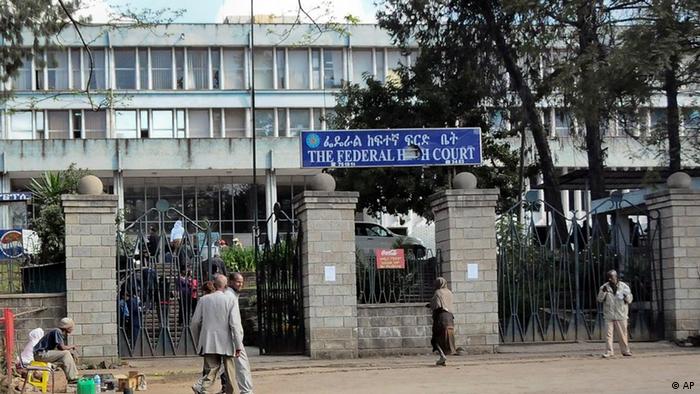

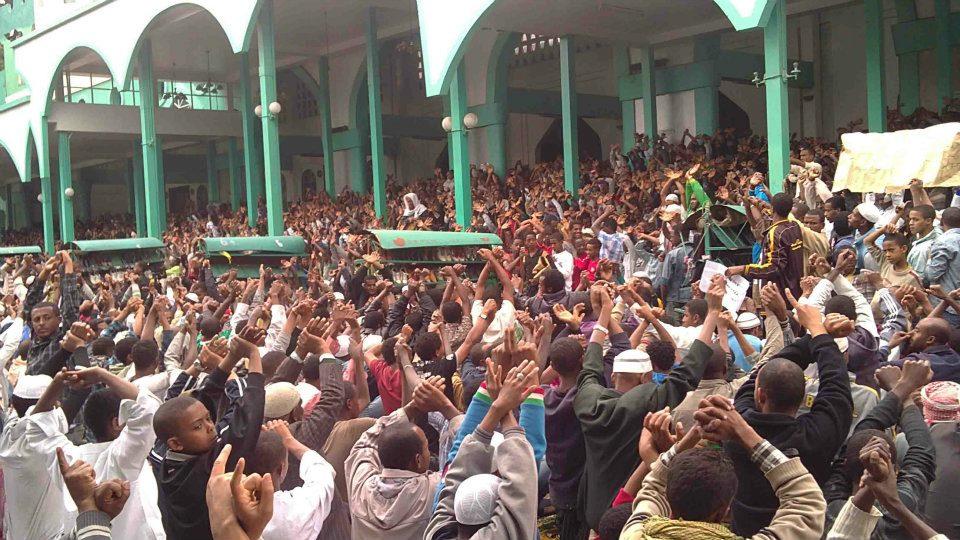


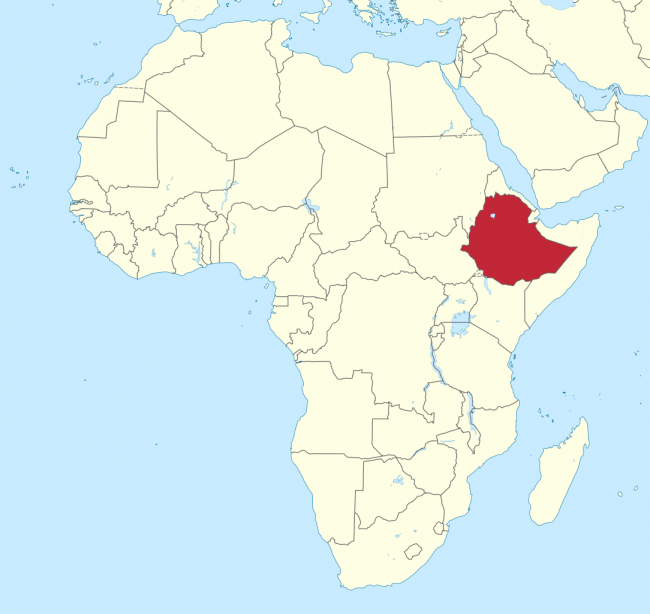 Thirty-eight countries in Africa criminalize homosexuality – approximately 70 percent of the continent. Imprisonment for same-sex acts is currently the law in Morocco, Algeria, Libya, Egypt, Senegal, Guinea, Ghana, parts of Nigeria, Cameroon, South Sudan, Kenya, Uganda, Tanzania, Zambia, Zimbabwe, and Namibia, as well as Ethiopia. The death penalty for gay acts is the law in Saudi Arabia, Yemen, Sudan, parts of Nigeria, Mauritania, and parts of Somalia. Only Mali, Burkina Faso, Central African Republic, and South Africa consider homosexual acts legal, and in South Africa, it is in fact legal to marry a same-sex spouse. The other African nations have contradictory laws, for example, in Angola there are laws against discrimination, but people are jailed for homosexual acts.
Thirty-eight countries in Africa criminalize homosexuality – approximately 70 percent of the continent. Imprisonment for same-sex acts is currently the law in Morocco, Algeria, Libya, Egypt, Senegal, Guinea, Ghana, parts of Nigeria, Cameroon, South Sudan, Kenya, Uganda, Tanzania, Zambia, Zimbabwe, and Namibia, as well as Ethiopia. The death penalty for gay acts is the law in Saudi Arabia, Yemen, Sudan, parts of Nigeria, Mauritania, and parts of Somalia. Only Mali, Burkina Faso, Central African Republic, and South Africa consider homosexual acts legal, and in South Africa, it is in fact legal to marry a same-sex spouse. The other African nations have contradictory laws, for example, in Angola there are laws against discrimination, but people are jailed for homosexual acts.
